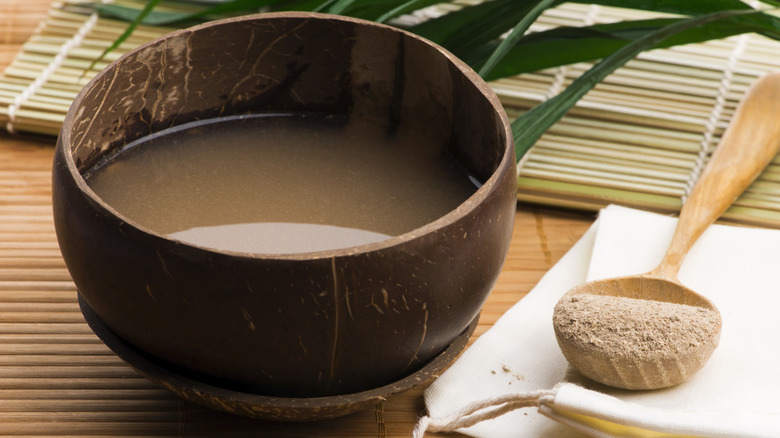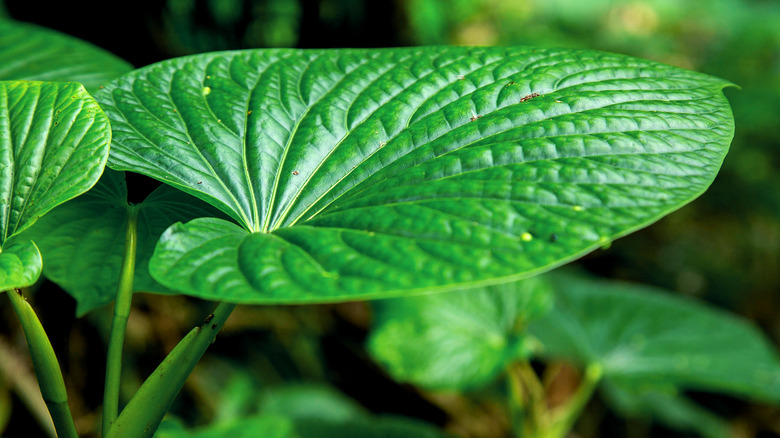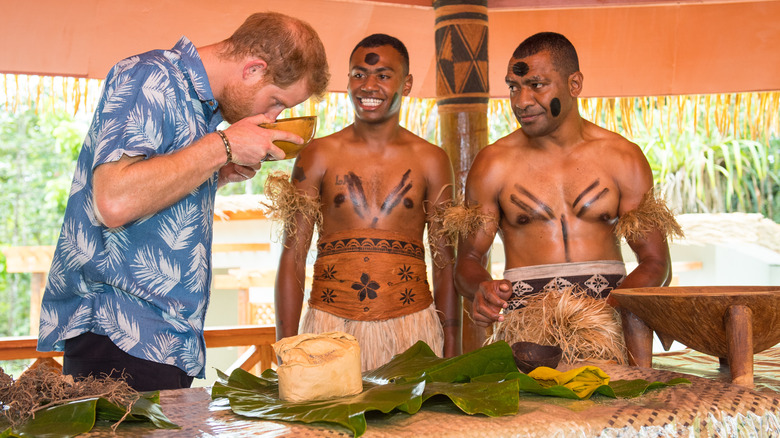What You Need To Know About Kava Tea Before Someone Offers It To You
Whether or not you've heard of it yet, kava tea has been around for many centuries. It's having a bit of a resurgence in recent years — boxes are lining the shelves in the tea aisle, photos are circulating of British and Hollywood royalty sipping it out of a bowl, and there's an uptick in kava bars opening around the United States.
Kava isn't just any old tea. It's been said to be able to relax your mind and body and make your lips and mouth tingly and numb. Some even claim it brings a sense of euphoria and will silence your mind and melt all your worries away — all within a few minutes of the first sip. And the sensation sticks around for a few hours. Sounds pretty good, doesn't it? But what exactly is this mystifying drink, and what do you need to know about it before you partake?
What is kava tea?
Kava tea is made from the ground root and stump of a tropical plant (Piper methysticum) that is native to the islands of the Pacific Ocean. The plant has been used for centuries in various forms to alleviate pain and aid with stress relief and as part of religious rituals and ceremonies. Its moniker stems from its bitter flavor, as "awa" is the Polynesian word for the taste.
Traditionally, the tea was made by people chewing the roots, spitting them out, and mixing them with water (sometimes coconut water). It would then be filtered and served in half of a coconut shell. While there are more sanitary methods of making kava tea today, by using ground powder made from the roots, it is still often enjoyed in shells or small wooden bowls.
Despite the limited evidence, people still consume kava tea today for its purported calming and relaxation effects. Kava works on GABA, a neurotransmitter responsible for blocking signals to the central nervous system in much the same way anti-anxiety and pain medicines do. It's enjoyed as a natural sleep aid and prescription medication alternative.
What you need to know before consuming kava tea
In the 1980s, kava began being used in northern Australia as an alternative to alcohol as it has similar sedative effects without the risks of physical addiction and withdrawal.
The effect kava tea will have on an individual depends on a multitude of factors, including their size, overall health, the strength of the tea, and whether it has been mixed with anything. For this reason, it is not recommended to consume alcohol and kava tea simultaneously, as it can increase the side effects of alcohol and has been linked to liver damage.
In addition, those planning to operate a vehicle or machinery should be cautious as it can affect their ability to do so safely. People have received citations for unsafe driving after having consumed large quantities.
It is unsafe for those pregnant or breastfeeding, those with liver disease or problems, and those diagnosed with Parkinson's disease, as it can worsen symptoms. It is also contraindicated with other medications and drugs, so you should check with your healthcare provider before consuming.
Short-term use with breaks is recommended. Long-term consumption has been linked to mood swings and apathy, dry skin, and malnutrition.


